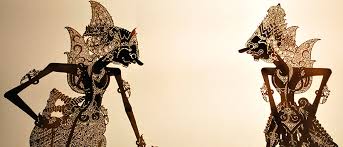NU hails UNESCO for championing Indonesian cultural heritages
Selasa, 7 November 2017 | 00:39 WIB
Lamongan, NU Online
The Nahdlatul Ulama (NU) chapter of Lamongan East Java appreciated the United Nations Educational, Scientific and Cultural Organization (UNESCO) for considering Indonesia as a superpower country in terms of culture.
"We do appreciate the decision made by UNESCO for, again and again, recognizing our country's legacies. The UNESCO's recognition is a proof that Indonesia could take part in both maintaining and preserving its cultural values for the betterment of the word," deputy chairman of NU lamongan KH Ahmad Suyuthi, popularly known as Kiai Suyuthi, told NU Online here on Tuesday (7/11).
According to the lecturer of Lamongan Islamic University (UNISLA), appreciating our cultural richness in a must for it is also part of our religious understanding in addition to reflecting a collective sense of being, namely a national or cultural identity.
As reported by a national news agency the UNESCO's recognition was asserted by the UNESCOs ADG Culture, Fransesco Bandarin, during a meeting with Indonesian Education and Culture Minister, Muhadjir Effendy, on the sidelines of the 39th UNESCO General Assembly that takes place at UNESCO Headquarters in Paris until Nov 14, 2017.
"There is no country in the world which has cultural heritage as rich as Indonesia, Effendy stated, quoting Bandarin, in an interview with ANTARA in London, over the weekend..
From wayang (shadow puppets), keris (traditional daggers), batik (traditional textile originally from Java), batik training, angklung (traditional music instrument from Sunda), noken (Papuan traditional woven bags), to Saman dance from Aceh and Balinese dance, Indonesia's intangible cultural heritages have been widely recognized by UNESCO.
Almost 600 intangible cultural heritages are nationally listed from Indonesia, Alternate Permanent Delegation to UNESCO T.A. Fauzi Soelaiman remarked.
UNESCO's recognition of Indonesia as having a huge diversity of cultures and heritages encourages the government to carry out inventory and maintenance measures of intangible objects, as regulated through the Law No. 5 of 2017 on the Advancement of Culture.
"Now, we must no longer hesitate in taking care of and promoting our cultural heritages," Effendy explained.
The multidimensional educator and intellectual revealed that various cultural heritages scattered throughout Indonesia will be handed over to the local government to be selected and certified for national recognition, as well as global recognition by UNESCO.
In addition, various cultural products also have additional value, which will be useful for improving the national economy.
A number of Indonesian heritages that have received UNESCO recognition are Borobudur and Prambanan temples in 1991, as well as the Cultural Landscape of Bali Province: the Subak System.
This year, the unique collection of more than 250 ancient tales revolving around the mythical Javanese Prince Panji, which is curated by Leiden University Libraries (UBL), has been acknowledged as world heritage by UNESCO.
Leiden collection of Panji tales is included in the UNESCO Memory of the World Register, along with similar collections maintained by the national libraries of Indonesia, Malaysia, and Cambodia.
In the years to come, Indonesia expects the Phinisi Ship to be listed as UNESCO's intangible cultural heritage, Old City of Jakarta to be UNESCO's world cultural heritage, as well as Pantun Melayu and Pencak Silat as UNESCO's intangible cultures. (Masdar)




